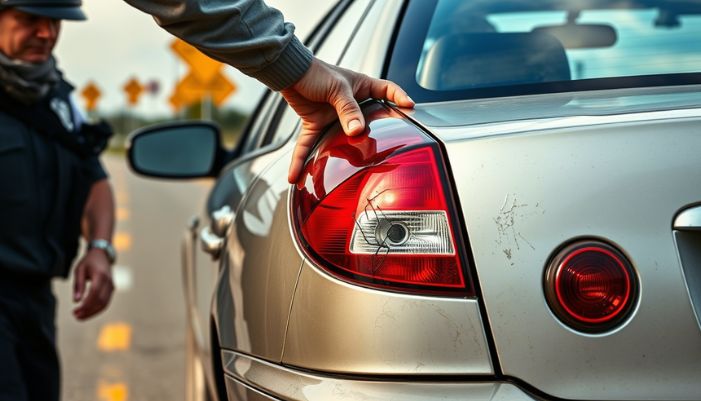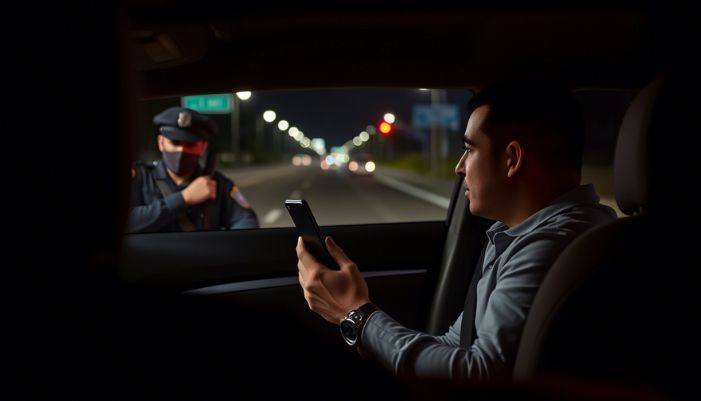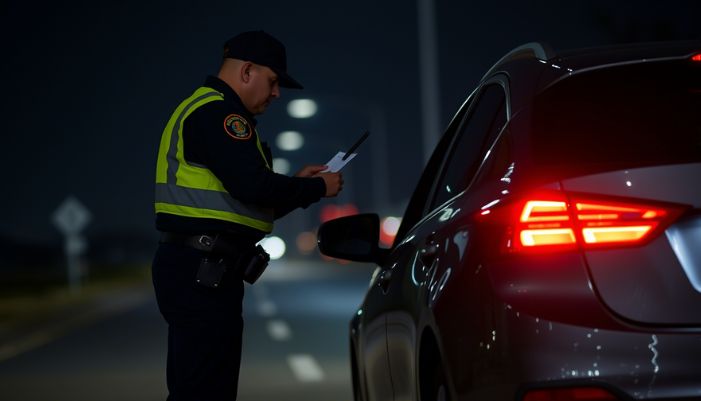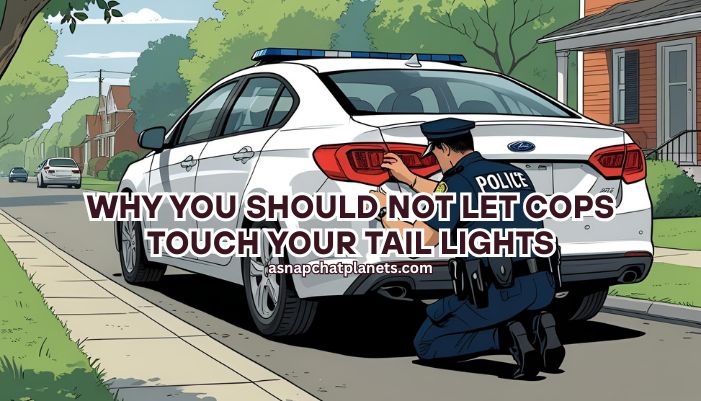Have you ever been stopped by the police and seen them touch your car’s tail light? It might seem strange. You might ask yourself, “Why did they do that?” or “Is that normal?”
Many people don’t know the reason behind this. And that’s okay.
In this article, we’ll explain why you should not let cops touch your tail lights. We’ll talk about what it means, why it happens, and what problems it can cause. The goal is simple: to help you stay safe, protect your car, and know your rights.
Why Do Police Touch Your Tail Lights?
To Leave a Fingerprint
Long ago, before cars had cameras, police would tap a tail light to leave a fingerprint. If something bad happened during the stop, the print would show the officer was there.
This was one way to track a stop when there was no video.
To Surprise the Driver
Some officers say they touch the light to startle the driver. If the person is hiding something in the car, they might jump or move fast. The officer may notice that and take action.
But Times Have Changed
Today, police cars have dash cams. Officers wear body cams. Computers track license plates. This makes tapping the light old and unnecessary.
Why You Should Not Let Cops Touch Your Tail Lights

1. It Can Damage Your Car
Tail lights are not made to be touched often. If a cop hits or taps it hard, it might scratch, smudge, or crack.
This is a problem, especially for older cars or cars with fancy paint. If it breaks, you might have to pay for the repair yourself. That’s not fair.
2. It Invades Your Space
Your car is your space. If someone touched your phone or your home without asking, you’d feel weird. The same goes for your car.
Even though a cop has power during a stop, they should not touch your car without a good reason.
3. It Could Be Used Against You
This part is tricky. If something happens later, a cop’s fingerprint might be used in a case. Even if you did nothing wrong, the fingerprint could raise questions.
It’s best to avoid anything that can cause confusion later.
What Are Your Rights During a Traffic Stop?

You Have the Right to Stay Calm
Always stay calm and polite during a traffic stop. But don’t forget—you still have rights.
You Can Ask Questions
If a cop taps your light, you can ask:
“Why did you touch my car?”
You can say it nicely. Most officers will explain. But even if they don’t, asking shows you are aware of your rights.
You Can Document What Happens
If something seems off, write it down later. Take photos if there’s damage. You can even use your own dash cam. These steps help protect you.
Cameras Make Touching Obsolete
Police Use Body Cams and Dash Cams
Most police today wear cameras. Their cars also have cameras that record stops. These devices show what happened, where, and when.
This means there’s no real need to leave a fingerprint anymore.
Computers Track Plates in Seconds
Police cars have computers that scan your license plate fast. They get all your info in just a few seconds. Again, tapping the tail light doesn’t help with this.
Keep Your Car Clean and Scratch-Free
If you love your car, you probably wash it often. You might even wax it or protect the paint.
Now imagine a glove or ring scratching it during a stop. That hurts, right?
Even a small mark can ruin the look of your car, especially if it’s dark or glossy. It’s one more reason to ask officers not to touch your tail light.
What Should You Do If It Happens?

Watch Carefully
If you’re pulled over, try to see what the officer does. Do they touch your light? Do they seem respectful of your car?
Take Notes or Video
If your tail light is scratched, take a photo. Write down what time it happened. Save the details. That way, you won’t forget.
Speak Up—Kindly
You can say something like:
“I’d prefer if you didn’t touch my car, officer.”
Most officers will understand. They may even explain why they did it. Being polite but firm shows you care about your rights and property.
Frequently Asked Questions (FAQs)
Conclusion
When a police officer taps your tail light, it may not seem like a big deal. But it can be. It could leave damage, feel like an invasion, or cause problems later.
That’s why it’s okay to ask questions. It’s okay to speak up. And it’s okay to expect your property to be treated with care.
